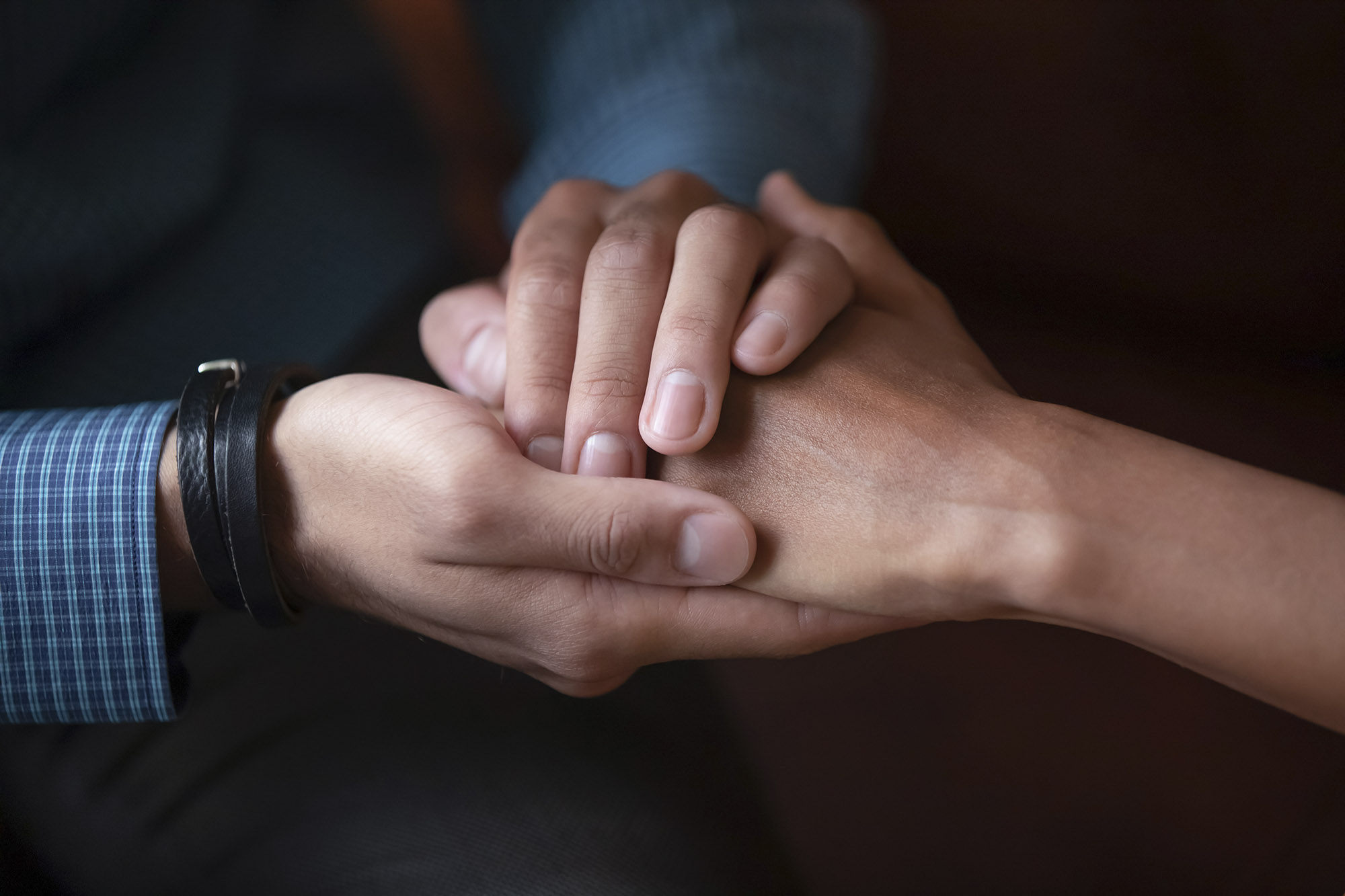In the past two years the coronavirus has killed more than 5.5 million people worldwide, with nearly 900,000 of those deaths in the United States alone.
The pandemic has left a heartbreaking trail of grief around the globe, turning people’s lives upside down. Still others are reeling from the sudden, unexpected death of a loved one, be it the result of a heart attack, suicide or some other devastating event.
“Grief obviously is something that most people go through at some point in their life and impacts millions of people every year, and it’s completely normal to experience grief in relation to loss,” said Nicole Ruzek, a clinical psychologist and the director of the University of Virginia’s Counseling and Psychological Services.
“When someone experiences a sudden and unexpected loss, first of all, I want to say there’s no kind of normal in that. So, when we do experience it, I think it can feel like the world is being completely turned on its head and everything that seemed like our day-to-day routine can be completely disrupted or feel even unreal,” Ruzek said.

Nicole Ruzek leads UVA’s Counseling and Psychological Services unit. (Photo by Dan Addison, University Communications)
She herself experienced two very sudden losses in the last two years. “Both having gone through it personally, but also helping people through that experience, what I often hear is people saying is that it feels like the world has gone on and is doing its normal things and yet in their world and their experience, everything has changed and nothing is what it used to be,” Ruzek said. “A sudden and unexpected loss can, I think, bring about not only grief, but also trauma for people.”
Often survivors don’t know how to support those who’ve suffered a devastating loss. That is a common experience, Ruzek said, because sudden loss is not something most people experience, so they don’t have a lot of practice with it.
“They don’t know what to do because they haven’t comforted someone who’s been through that kind of loss before, and then, too, they may also worry about making things worse. And so, they don’t want to say the wrong thing or make the person feel even worse,” she said. It can be uncomfortable, but “being able to listen and be there for someone and not avoid it can be one of the most powerful things you can do for someone.”
Ruzek offered a series of suggestions for how people can support loved ones who have suffered a sudden loss.
Acknowledge the Loss Directly
“I think one of the most important things is to acknowledge the loss directly and not to avoid it,” Ruzek said. “And I think it’s really powerful when people name it up front, to say very directly; ‘I heard that your mom passed away,’ or ‘I’m sorry to hear about what happened to your sister,’ really explicitly acknowledging what the loss and who the person was, who was lost. It’s very validating to the person going through that experience because oftentimes they can feel very alone.”
Express Sympathy and Empathy and Avoid Comparisons
Ruzek said when expressing empathy or sympathy, people can get tripped up by saying something like “I know how you feel,” but that statement can never be true.
“I think it’s OK to say, ‘I’ve been through loss myself,’ but not to compare your experience to theirs because every loss is different and especially if it’s a sudden and unexpected loss … those are very different,” she said.
Take the Role of Listener
Ruzek said it’s important to make your loved one feel heard. She suggests saying something like “Hey, I care about you and I’m here for you. If you want to talk, I’m happy to go for a walk or have coffee.”
She advises not forcing any particular conversation, but rather letting your loved one know that you are open to listening. She said you can also simply reach out and say you are thinking of your loved one, to let them know that you are holding them in that moment both psychologically or emotionally.
Deliver Food or Send a Small Gift
It may feel trite or overdone, but sending food or a token to make your loved one feel supported is always a good idea. Ruzek’s mother recently suffered the sudden death of her husband [Ruzek’s stepfather], who died suddenly at the gym. “He left for the gym that morning and then was just gone,” she said.
Her mother told her many times that one of the most powerful things was when people brought her food or said they were going to drop by briefly to deliver a gift. “Just being able to reach out to the person and do something for them, I think, is very powerful,” she said.
Offering help or support without being prompted is also nice because people grieving a sudden loss “oftentimes don’t know what they need or they want in that moment,” Ruzek said. “They’re just in a lot of shock.”
Follow-Up Long After the Loss
“Oftentimes, people reach out in those immediate moments following the loss. But after the time when everyone’s sent their cards and their texts and all of those things, it’s the weeks and months and even years after when people can feel really alone, because they aren’t getting that same attention,” Ruzek said. “Again, [reaching out] well after the loss, I think, is really important.”
Media Contact
Article Information
January 25, 2022
/content/your-loved-one-has-suffered-sudden-loss-here-how-help

